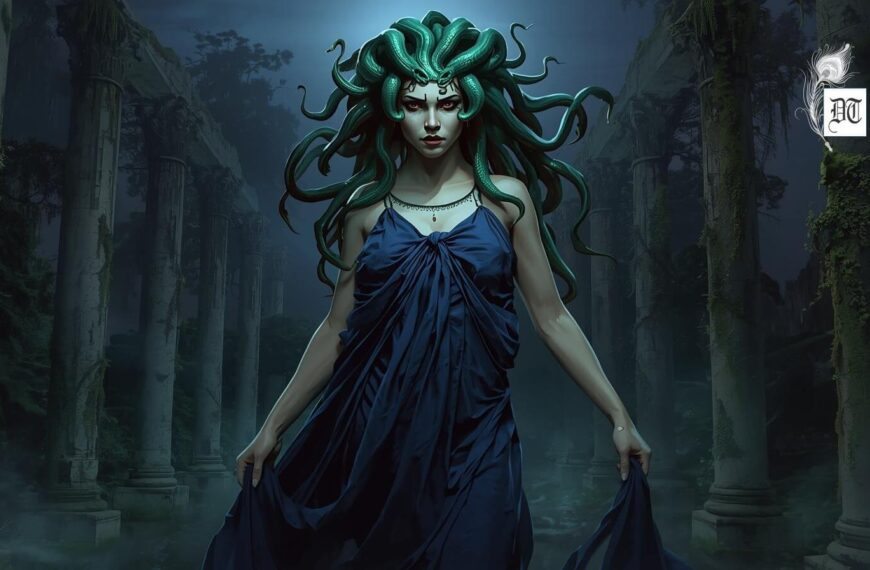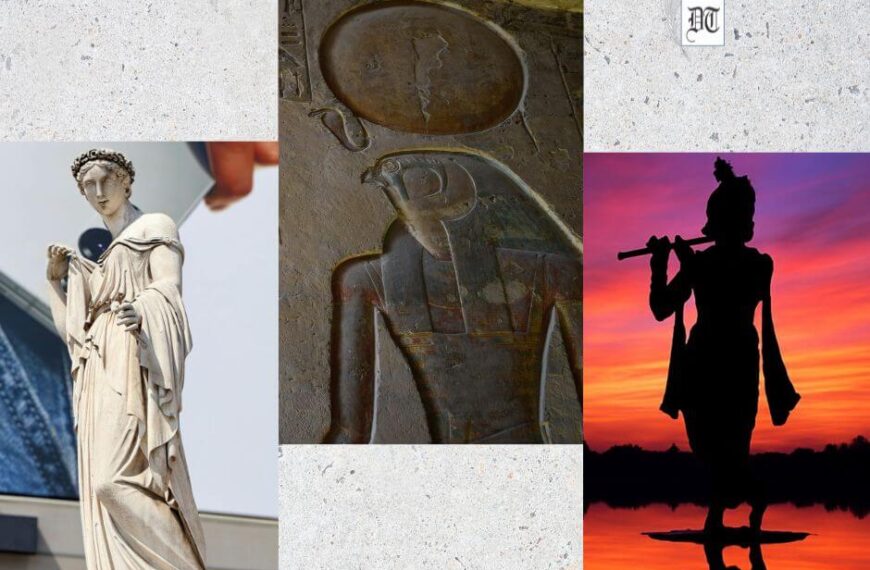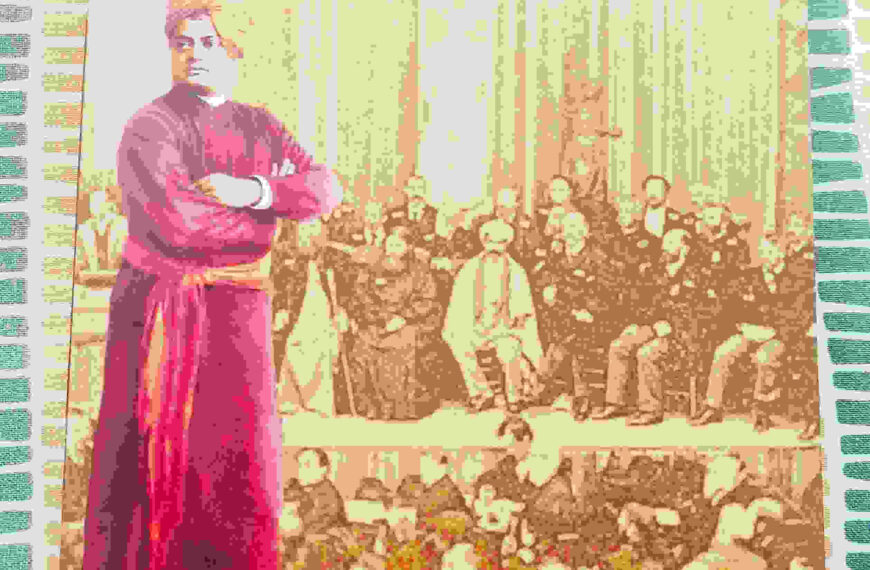Durga Pujo and plays are inseparable. Neelum recalls, tongue-in-cheek, about her grandfather’s, who directed a play, in the 1930s, in Allahabad’s oldest Colonelganj Barwari, on the very important day, Oshtumi. A fiasco during the staging of the Banquet Scene from the Shakespearean Macbeth changed everything. Here’s a special feature, exclusively in Different Truths.
Way back in the late 1930s, so I have heard from the garrulous keepers of my ancestral archives, my grandfather used to direct a play for the Colonelganj Barwari Durga Puja, to be  staged on Oshtuminight. For the Bengalis of Colonelganj that was no less than an Opening Night on Broadway or the West End.
staged on Oshtuminight. For the Bengalis of Colonelganj that was no less than an Opening Night on Broadway or the West End.
A fervent Shakespearean, my grandfather’s devotion to the Bard was such that, busy lawyer that he was and unable to find any other time slot in his packed schedule, he made his kids line up outside the privy (while he was performing those unmentionable and necessary bodily functions that flesh is heir to) to recite Shylock’s speech, or Macbeth’s or Hamlet’s. Any stammering error or stumble provoked a roar from within the loo, setting the orator trembling. Such the terror of the Bengali patriarch brought up to follow strictly Victorian principles of parenting the young!
It is not to be wondered that for the Oshtumi theatrical he usually chose a scene out of a Shakespeare play. Sundry neighbours from Lawrenceganj assembled for evening rehearsals: Taaru-da, Kaalu-da, assorted Bor-das, Mez-das and Chhor-das, Shontu-das and Montu-das, for it was an all-male cast, as in Shakespeare’s own time. Kaalu-da did women’s roles, his lissome form, sweet countenance and gentle voice more than adequate; and such deficiencies as nature was responsible for amply compensated by a pair of earthen kulhars fixed securely to his chest in the final show. Taaru-da, Grandfather’s best friend, always had the lead role. The others found themselves enacting earls, dukes, kinsmen, jesters, soldiers, whathaveyou.
Grandfather wasn’t a popular director and it was his hectoring courtroom manner in the courtyard rehearsals that finally provoked a mutiny in the ranks, bringing his directorial career to a bitter termin ation. It happened like this: The scene to be performed was the Banquet Scene out of Macbeth. The one in which Macbeth has invited his kinsmen to a feast and meanwhile had his friend Banquo quietly bumped off by three hired killers. And at the party who should turn up, along with the rest, but Banquo’s ghost, plunging Macbeth into what we’d now call a melt-down. Well, unbeknownst to the director, his cast had enlarged and embellished the script in ways the Bard would surely have approved, though not the director. What was a banquet without any mention of the food served, argued Lenox Bor-da, and when the lines, ‘ The sauce to meat is ceremony’ were rehearsed, visions of every sort of sauce and gravy in Bengali cuisine danced in his imagination and he carefully added some fine references to coconut-malai, mustard-chilli, lime juice-curd and cumin-ginger. Not to be outdone, Mez-da Ross had even organised, for the sake of verisimilitude, a real-life feast laid out on banana leaves on the high table. So part of the script had details of potoler-dolma, ilish maach, koshano-mangsho,chingri-malai-curry, ghonto, dhoka, mocha, sukto, chochori, chaatni and mishti-doi! Lady Macbeth Boudi had lovingly arranged it all, persuaded that any banquet scene worth its salt was incomplete without mention of khava-dava.
ation. It happened like this: The scene to be performed was the Banquet Scene out of Macbeth. The one in which Macbeth has invited his kinsmen to a feast and meanwhile had his friend Banquo quietly bumped off by three hired killers. And at the party who should turn up, along with the rest, but Banquo’s ghost, plunging Macbeth into what we’d now call a melt-down. Well, unbeknownst to the director, his cast had enlarged and embellished the script in ways the Bard would surely have approved, though not the director. What was a banquet without any mention of the food served, argued Lenox Bor-da, and when the lines, ‘ The sauce to meat is ceremony’ were rehearsed, visions of every sort of sauce and gravy in Bengali cuisine danced in his imagination and he carefully added some fine references to coconut-malai, mustard-chilli, lime juice-curd and cumin-ginger. Not to be outdone, Mez-da Ross had even organised, for the sake of verisimilitude, a real-life feast laid out on banana leaves on the high table. So part of the script had details of potoler-dolma, ilish maach, koshano-mangsho,chingri-malai-curry, ghonto, dhoka, mocha, sukto, chochori, chaatni and mishti-doi! Lady Macbeth Boudi had lovingly arranged it all, persuaded that any banquet scene worth its salt was incomplete without mention of khava-dava.
And Taaru-da, as Macbeth, apprehending the director’s ire at all these last-minute innovations, no less than troubled by acute stage-fright, had opened his prized bottle of Exshaw No. 1 Doctors’ Bra ndy, usually reserved for winter evenings when the monkey-cap and the khaki puttees failed to warm the blood. So when Macbeth said: ‘Be large in mirth; anon, we’ll drink a measure the table round…’ it was a very large measure indeed that found its way into Taaru-da’s system and also ‘the table round’. The ghost of Banquo appeared, settled himself on Macbeth’s seat and proceeded to eat. Old Kaibla-Kaku, simple as he was, had been the only one considered fit for the ghost’s part, a role unchallenging to his elementary wits. However, it was this simplicity that overcame his memory of the script, arguing what was a feast if not to eat? Seeing him, the rest of the cast fell to, including the murderers, leaving Macbeth babbling alone about his cabin’d, cribb’d, confin’d condition. Vexed, he strode up to Kaibla-Kaku, bellowed at him to ‘Avaunt! And quit my sight! And let the earth hide thee…,’ which outcry made no impression on Banquo’s ghost, who stolidly went on eating. And when Lady Macbeth Boudi came charging up, as inflamed as any managerial, omni-competent Bengali wife, and pronounced her spouse ‘ quite unmann’d in folly’, shrilling: ‘Fie! For shame!’, Macbeth-da, by now abundantly primed on several legitimate gobletfuls of Exshaw No. 1 Brandy and grown bolder by the sip, turned on his lady with a manly blast that might have put the Alipur Bomb Case to shame: ‘Dur! Chupkor!’
ndy, usually reserved for winter evenings when the monkey-cap and the khaki puttees failed to warm the blood. So when Macbeth said: ‘Be large in mirth; anon, we’ll drink a measure the table round…’ it was a very large measure indeed that found its way into Taaru-da’s system and also ‘the table round’. The ghost of Banquo appeared, settled himself on Macbeth’s seat and proceeded to eat. Old Kaibla-Kaku, simple as he was, had been the only one considered fit for the ghost’s part, a role unchallenging to his elementary wits. However, it was this simplicity that overcame his memory of the script, arguing what was a feast if not to eat? Seeing him, the rest of the cast fell to, including the murderers, leaving Macbeth babbling alone about his cabin’d, cribb’d, confin’d condition. Vexed, he strode up to Kaibla-Kaku, bellowed at him to ‘Avaunt! And quit my sight! And let the earth hide thee…,’ which outcry made no impression on Banquo’s ghost, who stolidly went on eating. And when Lady Macbeth Boudi came charging up, as inflamed as any managerial, omni-competent Bengali wife, and pronounced her spouse ‘ quite unmann’d in folly’, shrilling: ‘Fie! For shame!’, Macbeth-da, by now abundantly primed on several legitimate gobletfuls of Exshaw No. 1 Brandy and grown bolder by the sip, turned on his lady with a manly blast that might have put the Alipur Bomb Case to shame: ‘Dur! Chupkor!’
The audience cheered. That was the last year my grandfather directed a play. 1939 it was.
©Neelum Saran Gour
Photos from the Internet
#DurgaPuja #DurgaPujaCelebration #BenaliFood #Mcbeth #Theatre #TongueInCheek #DurgaPujaSpecial #DifferentTruths




 By
By

 By
By
 By
By